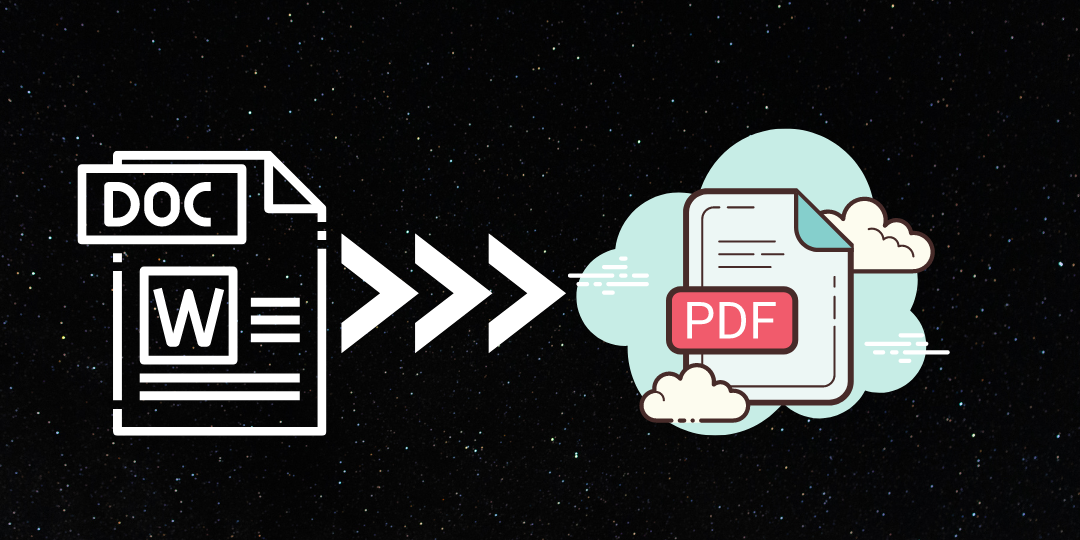Engineering
Online Word to PDF Conversion: Simple and Secure
Learn how developers & engineering teams programmatically convert Word to PDF online, using secure and scalable DOCX to PDF APIs.
MA
Maria Hayat
Last updated on May 02, 2025
Online Word to PDF Conversion: Simple and Secure
Why Convert Word Documents to PDF Online: A Guide for Developers
As a developer or engineering team, you often need to convert Word documents (DOCX) to PDF online — whether for document processing, reporting, or sharing files with users. Using a free Word to PDF converter or an automated Word to PDF API simplifies this task, allowing you to seamlessly integrate docx to pdf conversion into your applications.
Lets start by explaining why it's probably a good idea to convert word documents into PDFs before sharing them:
Benefits of Using a Word to PDF Converter Online
1. Consistent Formatting Across Devices
A major advantage of converting Word docs to PDF is preserving the original layout and formatting. Unlike Word files, which can vary across platforms, a secure Word to PDF conversion ensures your document appears identical everywhere — on Windows, Mac, or mobile devices.
2. Enhanced Security for Sensitive Files
Using a Word to PDF API enhances security by enabling password protection and controlled access. PDFs are widely supported and provide an extra layer of protection for sensitive files, unlike Word docs which depend on specific software.
Although Word documents also offer password protection, PDFs are more universally supported across platforms and devices. They can be opened on almost any device, even without needing Microsoft Word installed. Secure PDF conversion adds an extra layer of protection, ensuring that your files remain secure when shared.
For enhanced security, consider using Secure File Archives alongside PDFs to keep your data safe during transmission.
3. Broad Compatibility with Software and Devices
PDFs are accessible through virtually any PDF viewer or web browser, making them more versatile than Word files. A DOCX to PDF online free tool or API ensures your documents can be shared and opened by anyone, anywhere.
4. Smaller File Size for Efficient Sharing
In addition, reducing file size can help with storage management, especially when dealing with multiple files or documents within your application. By using online file conversion tools, you can streamline your workflow while optimizing storage space.
How Developers Can Automate DOCX to PDF Conversion
For developers seeking to programmatically convert Word to PDF, leveraging a DOCX to PDF API is a game changer. Instead of manual conversions, you can automate DOCX to PDF workflows, integrate seamless convert word to pdf API calls, and improve your application's user experience.
Popular Tools & APIs for Word to PDF Conversion
A developer-friendly Word to PDF API that offers secure, scalable file conversion. It supports automating DOCX to PDF conversions with minimal setup, perfect for embedding in your apps.
-
CloudConvert
A flexible convert to pdf API supporting over 200 formats, including docx to pdf API functionality, with detailed control over file quality and size. -
Smallpdf
Free and easy-to-use online Word to PDF converters with additional PDF editing features, ideal for quick conversions without coding. -
ILovePDF
ILovePDF is a free online tool that allows for converting Word documents to PDF with a clean and simple interface. It also provides additional features such as PDF compression and editing tools. -
Adobe Acrobat Pro DC
A premium tool for professional PDF creation and editing, supporting batch word doc to pdf API workflows for enterprise teams.
| Provider | Best For | Not Ideal For |
|---|---|---|
| ApyHub API | Developers looking for seamless integration and automation | Non-developers or users needing a simple one-time conversion |
| CloudConvert | Developers needing flexible API options for various formats | Users who need a simple, no-code solution |
| Smallpdf | Users looking for a quick and easy online solution | Users needing advanced customization or automation features |
| ILovePDF | Users needing a straightforward online conversion tool with some additional PDF features | Teams needing batch processing or advanced features |
| Adobe Acrobat Pro | Teams or professionals requiring advanced PDF editing and high-quality conversions | Individual users looking for a budget-friendly option for basic conversions |
Why Choose ApyHub's DOCX to PDF API?
One of the most efficient ways to convert Word docs to PDFs is by leveraging APIs. ApyHub’s File Conversion API offers an easy-to-use solution for converting Word documents to PDFs, along with other file types like presentations. With just a few lines of code, developers can integrate file conversion directly into their workflows.
Using an online Word to PDF API like ApyHub’s File Conversion API helps developers:
- Automate DOCX to PDF conversions within applications effortlessly
- Programmatically convert Word to PDF without manual intervention
- Scale document conversion for any project size
- Ensure secure Word to PDF conversion with compliance and data protection
- Access a free Word to PDF converter API for testing and integration
ApyHub’s online conversion API is perfect for any developer looking to quickly and securely convert files without building a conversion tool from scratch.
FAQs:
1. How can I convert Word documents to PDF programmatically?
Integrate a reliable DOCX to PDF API like ApyHub’s File Conversion API into your app. Simply send the Word file to the API, and it returns a high-quality PDF.
2. Is online Word to PDF conversion secure?
Yes, top APIs use encryption and secure protocols to protect your documents during the convert word to pdf API process. You can also add password protection to PDFs for extra security.
3. Can I automate DOCX to PDF conversion?
Absolutely! Using APIs designed for automate DOCX to PDF workflows allows full automation without user intervention.
4. Are there open source Word to PDF tools?
Yes, some open source tools exist, but for ease of integration, scalability, and security, using a trusted Word to PDF API is recommended.


